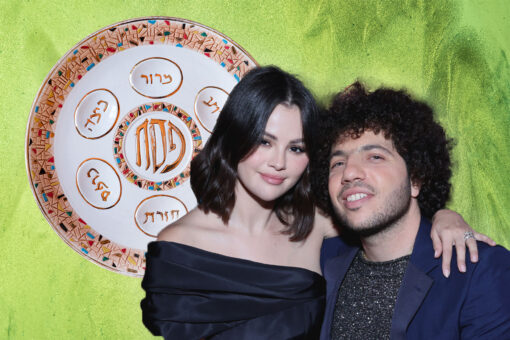Robin Williams, my all-time favorite actor, would have turned 69 this week had he not died by suicide six years ago as a result of a lifelong struggle with bipolar disorder. Currently, Kanye West, brilliant artist, husband of Kim Kardashian, and, well, presidential candidate who has talked quite openly about having bipolar disorder in the past, seems to be currently experiencing a manic episode — while the internet watches and laughs.
Mania is no joke. Full-blown mania, the “upswing” to depression’s downswing, is not a fun perk of having bipolar disorder (formerly called manic-depressive illness), as some unfortunately believe. It can often lead to sleep deprivation, malnutrition, and spontaneity whose consequences can be unimaginably far-reaching and even life-altering. Because of these effects, mania can be just as dangerous as depression, and even more so in the sense that people — bipolar sufferers themselves, as well as their friends and family members — are often less likely to recognize its dangers.
Someone talking about suicide or harming themselves usually raises some red flags; someone beginning to train for a marathon or randomly deciding to go on a road trip usually does not. But both mania itself and its relationship to depression can be catastrophic, and I am — thankfully, and just barely — living proof.
I suffered from depression and anxiety for my entire childhood and adolescence. I saw my first therapist at the ripe old age of 5. I was obsessively anxious throughout middle school and high school, but I channeled it so aggressively into my schoolwork that it appeared to many to be the amusing quirk of an overly intense student, rather than any sort of serious issue. My favorite teacher in high school once wrote on a report card, verbatim, “Miranda is charmingly and enthusiastically neurotic.”
But my first semester of college shattered this illusion; after months of mounting anxiety that manifested mostly in obsessing and worrying about my first serious romantic relationship, my panic attacks got so bad that I stopped eating, and I was constantly spiraling deep into theoretical anxiety scenarios regarding my relationship with my boyfriend at the time. I had to take a medical leave, was diagnosed for the first time with two anxiety disorders, and went on antidepressants, probably about six years later than I should have.
With the exception of some smaller ups and downs, I was mentally healthy for five or six years after my freshman year of college; I stayed on my antidepressants, went to therapy, and maintained healthy behavioral patterns and relationships. When I started to feel more down or more anxious than usual, I would work on it in therapy and talk to a psychiatrist about getting my meds adjusted slightly, and for the most part, everything was fine. I was mildly depressed for my first two years out of college (also the first two years of Trump’s presidency…) but hey, it’s a weird time for everyone, right?
Then, two summers ago, a switch flipped in my brain. Suddenly, everything in my life felt better, without many circumstances having actually changed; the best way I can describe it is with the cliché that some kind of nebulous weight had been lifted from my shoulders. By August, I had begun to delight in and obsess over trivial connections between concepts, and started writing poetry (of varying quality) much more often than usual. By the end of that week, I had stopped sleeping. I (an avowed lover of Jewish secularity and of all things treyf) had also decided to become Modern Orthodox. I had had several conversations and encounters with friends, loved ones, and, most unfortunately, professional mentors, which many of them could only describe as strange. My thoughts were moving so quickly that I couldn’t process them before they were interrupted by other thoughts. I was in a frenzy.
A couple of my former coworkers, who I am lucky to count among my dearest friends, became concerned and coaxed me to go to an emergency room. As I waited there for a psychiatric intake, I completely lost the remnants of my tenuous grip on reality. I had to be sedated. My next memory is waking up two days later in a psych ward, where a doctor gently informed me that I was type 1 bipolar and having a manic episode.
I was thrilled. After all, I was manic, so I had never been happier, more energetic, or more confident about the direction my life was heading. And finally, everything made sense: As I enthusiastically told everyone in the hospital and pretty much all of my acquaintances (regardless of how recently we had spoken or how close we were), now that I knew I was bipolar, I understood that anything less than my current euphoria had been a depressive state, and I was finally myself again. (At this point I would have liked to have the narrator from Arrested Development chime in: “She was not.”)
Because I was in a safe, controlled setting during the height of my mania, I avoided danger, but just barely; two days before I was admitted, I had driven from Massachusetts to New York in a sleep-deprived manic daze. For weeks I had been eating so little that I was losing an average of five pounds a week and would wake up in the middle of the night violently shivering no matter the temperature. And though my friends and doctors caught the mania “in time,” in the sense that I was in a hospital before I made any further risky decisions, it was already too late in another sense: In many cases, depression follows right on the heels of mania, and can be understood as a sort of equal and opposite reaction to it. In other words, it is often true that the worse a manic episode gets before it is treated, the worse the depressive episode that is likely to follow it will be.
Unfortunately, that was my experience. For about half a year, beginning shortly after my two-week hospitalization for mania, I experienced a depression that made me sicker than I have ever been, both physically and emotionally. I spent all of 2019 recovering painfully slowly, and blandly questioning the point of being alive — which was a noticeable step-up from the previous year’s emotional nadir. Much of that experience is still too painful for me to think, let alone write, about, but suffice it to say that a combination of intensive psychiatric treatment, therapy, and support from loved ones saved my life, and these days, I am almost constantly aware of the still novel fact that I am not just alive, but happy.
That all said, we do not live in a society that makes it easy for people like me to be safe. By my count, I saw nine different therapists and psychiatrists about my anxiety and depression before my first acute manic episode, and not a single one asked me any questions that would have helped them determine that I was bipolar. Had any of them considered some of the warning signs that were already present — my extreme irritability as a young adolescent, my effusive temperament that sometimes verged on a social liability, my occasional obsession over various intellectual minutiae — perhaps I would have been treated with a more accurate medication plan. (Antidepressants themselves can increase the risk of mania, so it can be dangerous to accidentally treat a bipolar person for unipolar depression, i.e. without mood stabilizers in addition to antidepressants.)
Perhaps I never would have had that earth-shattering manic episode and the life-threatening depression that it largely caused. But there’s no use in considering the many strands of the multiverse that we do not live in (a particular preoccupation of mine that the mania highlighted, among countless other embarrassments). What is worth considering, though, are how many lives could be saved and crises prevented were there more openness and better education about bipolar disorder.
Recent artistic and literary representations of bipolar experience — Shira Ehrlichman’s poetry collection Odes to Lithium; Halsey’s recent album Manic; the Amazon adaptation of Terri Cheney’s Modern Love essay about dating while bipolar, starring Anne Hathaway — have helped to open some eyes, but there is so much still to be done. It’s been almost exactly two years since my first full-blown manic episode, and though it has consumed much of my intellectual and creative landscape ever since, this is the first time I’ve written about it publicly. I was nervous to do so: The stigmatization and misunderstanding surrounding this sort of illness is such that sufferers often lose jobs and even friends when they open up about it.
Many people, thankfully, seem to understand and empathize with at least mild anxiety and depression these days, but suicidality, mania, psychosis, and their attendant ruptures are another matter. The apparent hordes of people purportedly working on destigmatizing going to therapy have curiously little to say about psychotic illnesses; in that silence, I hear “It’s okay to have anxiety! It’s okay to take Zoloft! Normal people do! But that other kind of mental illness… well, those are the real crazy people.”
But the professional risk I feel I am taking by writing about my mental illness is far less than the cost of silence and its profound risk to those whose illnesses go undiagnosed as a result of societal ignorance and stigmatization.
When people stop laughing at Kanye’s unhinged tweets and start realizing that mania, both in its own right and because of its ties to depression, is life-threatening; when people stop referring to Donald Trump’s cruelty and fascism as proof of him being mentally ill; when people stop describing murderers and dictators as “psychotic” and start to understand that they are using an experience that affects kind, good, intelligent people as a shorthand for “evil” — perhaps then we’ll be on the right track. Perhaps then we, our friends, our family members, and our role models won’t have to suffer in silence.
Kanye’s bipolar crisis is taking place on an international scale, but many take place invisibly. And visibility can mean the difference between life and death.
Header image via Mike Hill/Getty Images.



